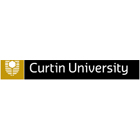Bachelor of Advanced Biomedical Sciences (Honours) – Discovery Bioscience
Bachelor of Advanced Biomedical Sciences (Honours) – Discovery Bioscience
The Bachelor of Advanced Biomedical Science (Hons) is a research-focused degree, designed for high-ATAR students with an interest in biomedical science research. In your first year, you’ll study interprofessional course units with students from other disciplines, alongside units specific to this course. From your second year, you’ll study your chosen…
Categories
COURSE DESCRIPTION
The Bachelor of Advanced Biomedical Science (Hons) is a research-focused degree, designed for high-ATAR students with an interest in biomedical science research.
In your first year, you’ll study interprofessional course units with students from other disciplines, alongside units specific to this course.
From your second year, you’ll study your chosen major – either in Discovery Bioscience or Clinical Medical Science – and will progress your research skills in experimental design, ethics, statistical analysis, scientific writing, data management and critical interpretation.
You’ll undertake project units with strong industry and research collaborations that give you guided practical experience in biomedical research. You’ll also participate in a research roadshow in a variety of operational research settings, such as laboratories and clinical trial sites.
There are opportunities to undertake extracurricular activities to further develop your research skills.
In your final year, you’ll complete a full-year research program within the laboratory of an approved university, research institute or industry research site.
Discovery Bioscience
In Discovery Bioscience, you’ll look at ways we’re advancing our knowledge of the biological processes that underpin a person’s health, including studies in genomics, bioinformatics, transcriptomics, proteomics, metabolomics and lipidomics, and the application of new technologies.
Career information
Careers
- Biotechnologist
- Graduate medicine
- Media and science communications officer
- Researcher
Industries
- Biotechnology
- Education
- Government
- Hospital and medical sector (medical diagnostic laboratories, reproductive technologies)
What you’ll learn
Integrate advanced skills, concepts and principles into the investigation of research questions in the biomedical sciences.
Demonstrate autonomy, adaptability and initiative in the generation of novel evidence-based solutions in the biomedical sciences.
Effectively disseminate research outcomes to a variety of audiences using communication technologies.
Apply national and international research standards to biomedical problems of local and global significance.
Demonstrate cultural competency through research practice that considers cultural diversity and a willingness to learn from, engage with, and be empathetic towards, people from diverse backgrounds.
Demonstrate leadership and ethical practice when engaging with, and learning from, the community, research colleagues and industry.
REQUIREMENTS
Students from different countries should have qualifications equivalent to Australian Year 12 and a scaled mark of at least 50 in English, Literature, or English as an Additional Language or Dialect.
IELTS (International English Language Testing System) – Listening, Reading, Writing, and Speaking – 6.0; Overall band score 6.5; TOEFL Score: 79 (overall); Reading 13; Listening 13; Speaking 18; Writing 21; Pearson Test of English – Listening, Reading, Writing, and Speaking – 50; Overall band score 58; TOEFL (Test of English as a Foreign Language) and PBT (Paper Based Test) – 570 and 4.5 in TWE; C1 Advanced Formerly known as Cambridge English: Advanced (CAE) 176 with 169 in Reading, Writing, Listening and Speaking. C2 Proficiency Formerly known as Cambridge English: Proficiency (CPE) 190 with 176 in Reading, Writing, Listening and Speaking.
EDUCATIONAL INSTITUTION
Curtin University is Western Australia’s largest and most culturally diverse university with Australia’s third largest international student population. Around 60,000 students from more than 130 countries study a Curtin degree, at locations including Perth, Margaret River, Kalgoorlie, Sydney, Malaysia and Singapore. Our cultural diversity adds a rich and valuable dimension to the campus atmosphere, preparing all graduates to live and work effectively in an increasingly global environment. We offer a range of industry-aligned undergraduate and postgraduate courses in business, humanities, health, engineering and related sciences. We also have a long-standing focus on Aboriginal and Torres Strait Islander education and culture, supported by our Centre for Aboriginal Studies.Curtin is widely recognised for its practical research that is focused on solving timely, real-world problems. In recent years our research activity has grown significantly, driving our rapid rise up the international university rankings.As a university that never settles, we will continue to develop existing partnerships and establish new ones in areas relevant to our research and teaching.




